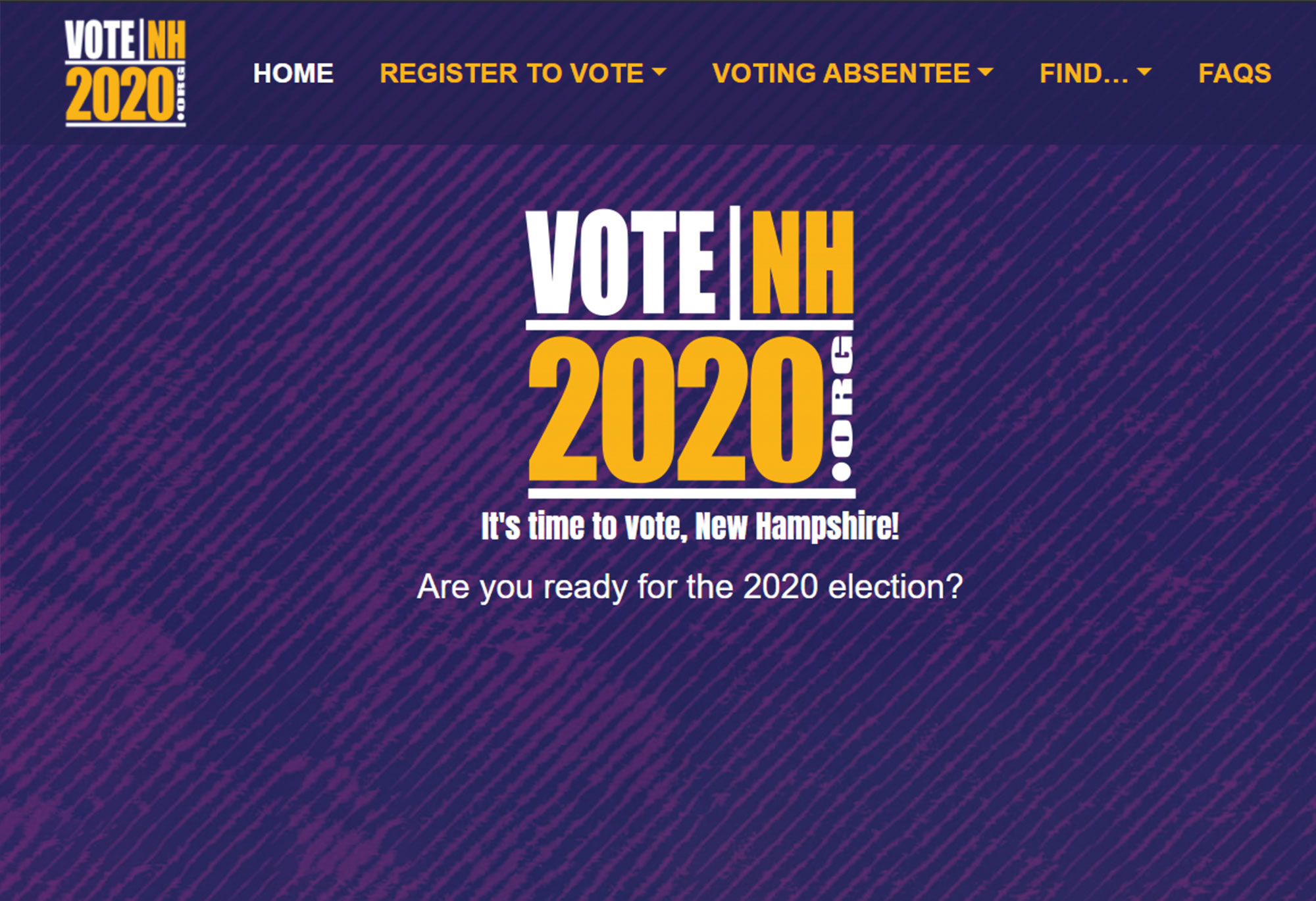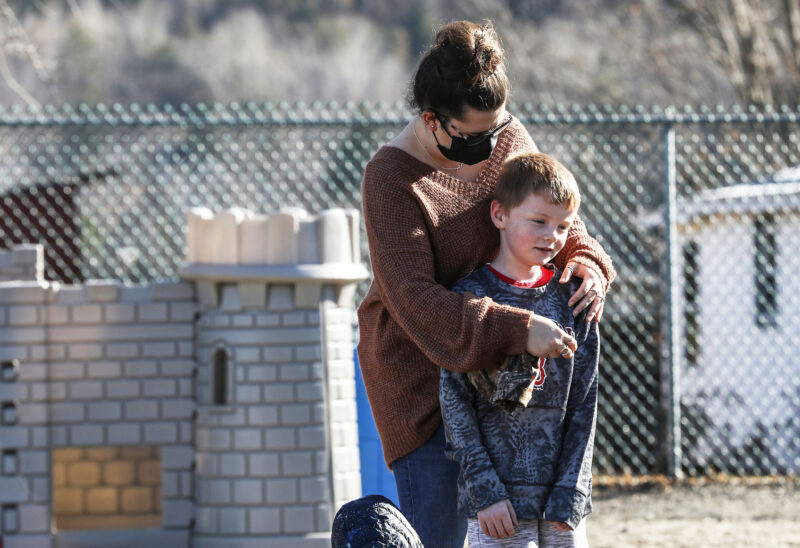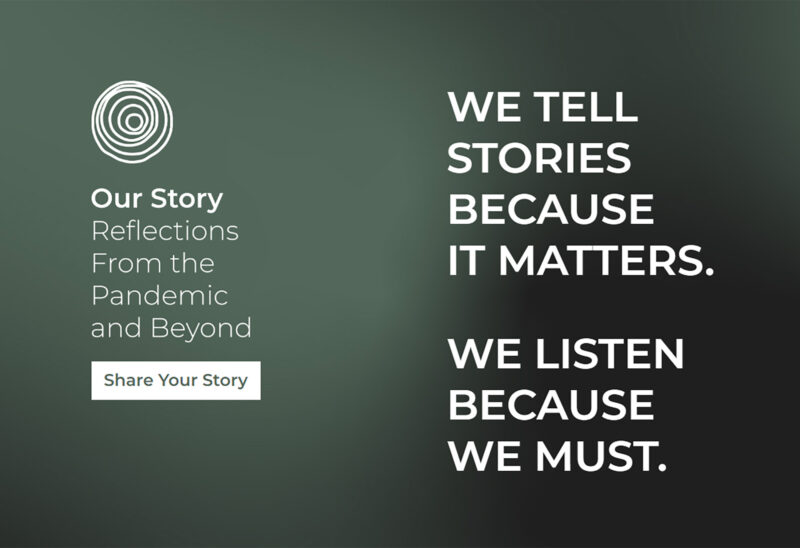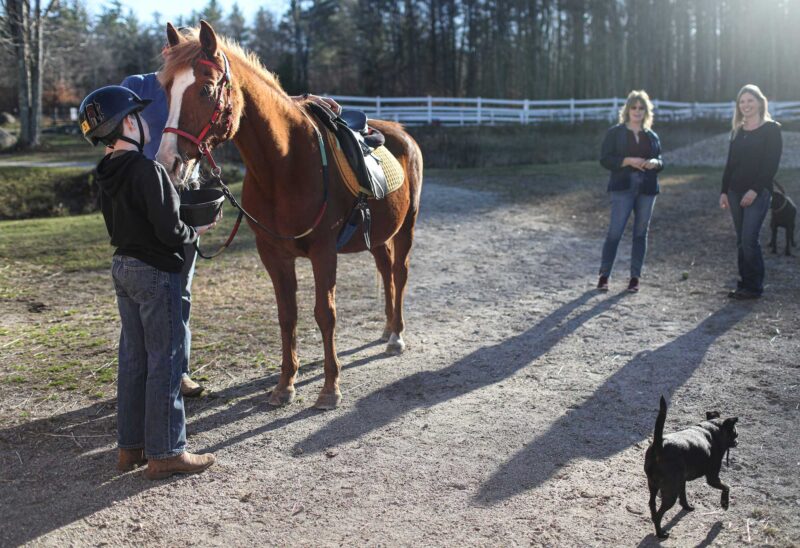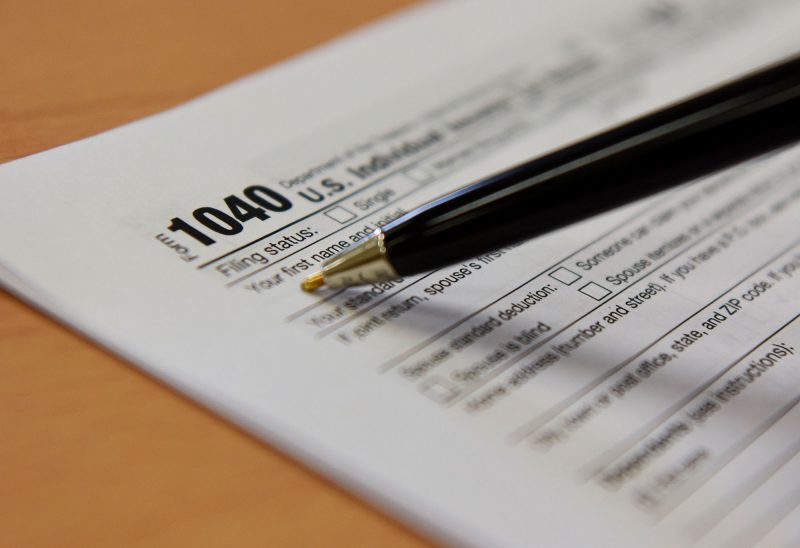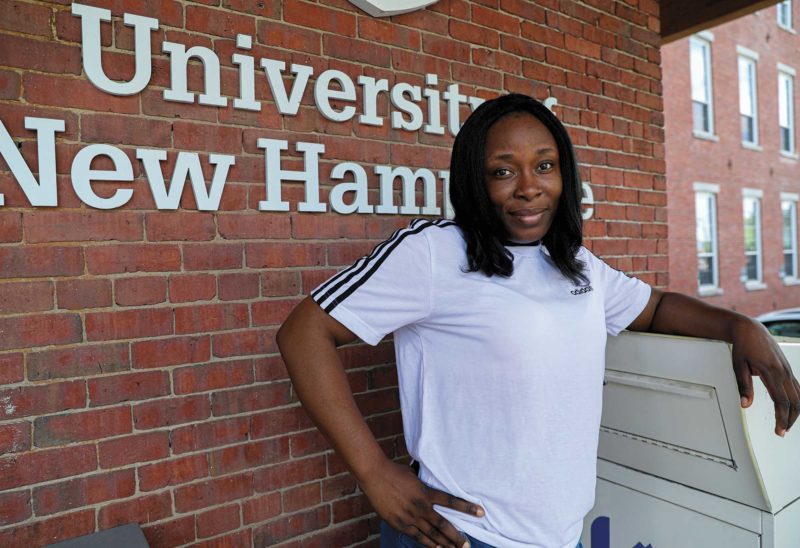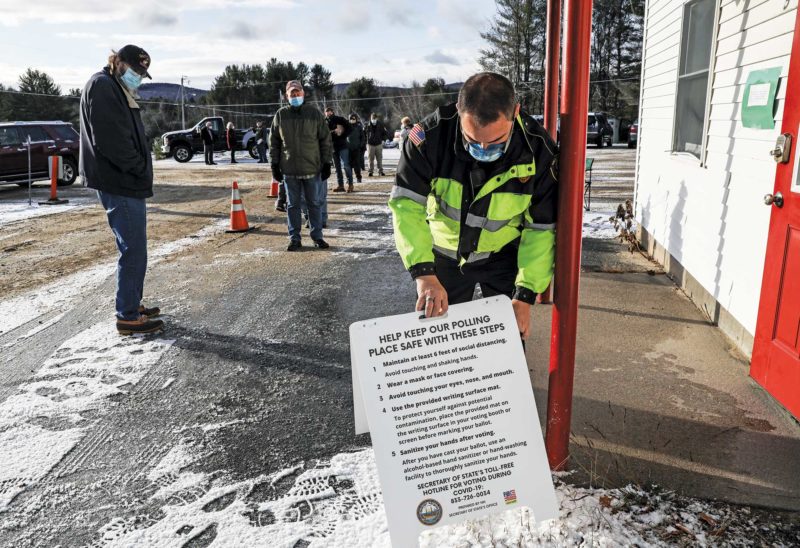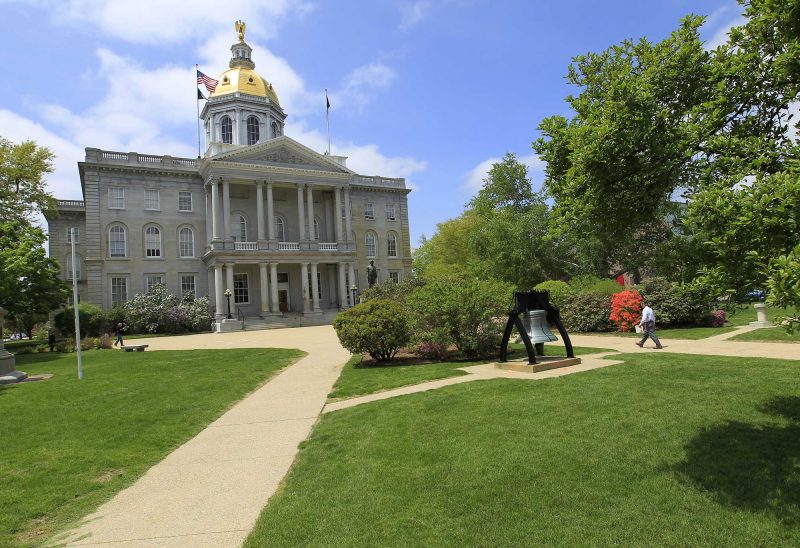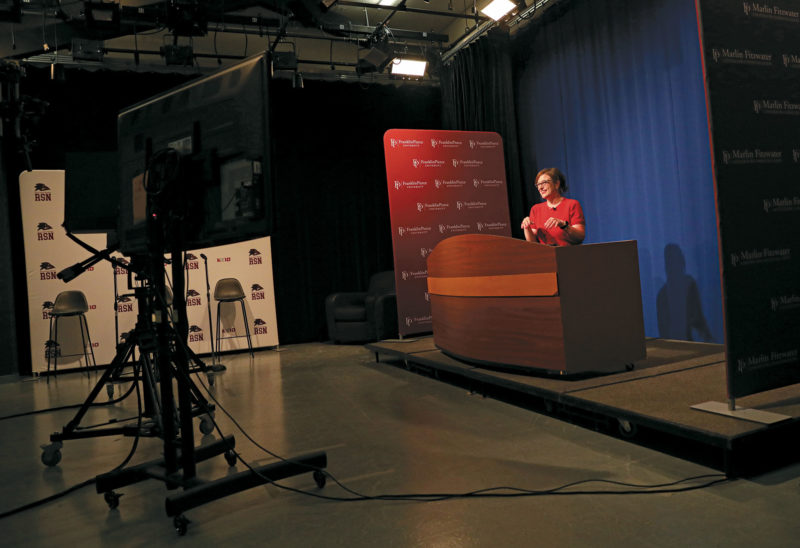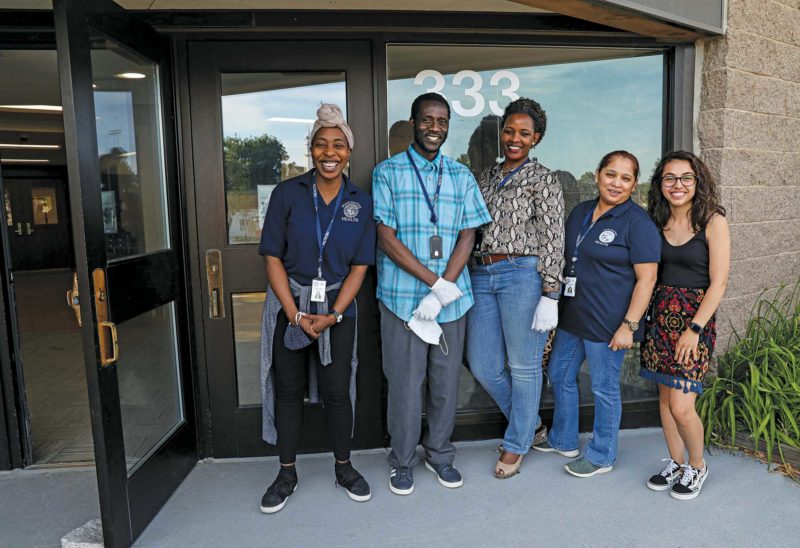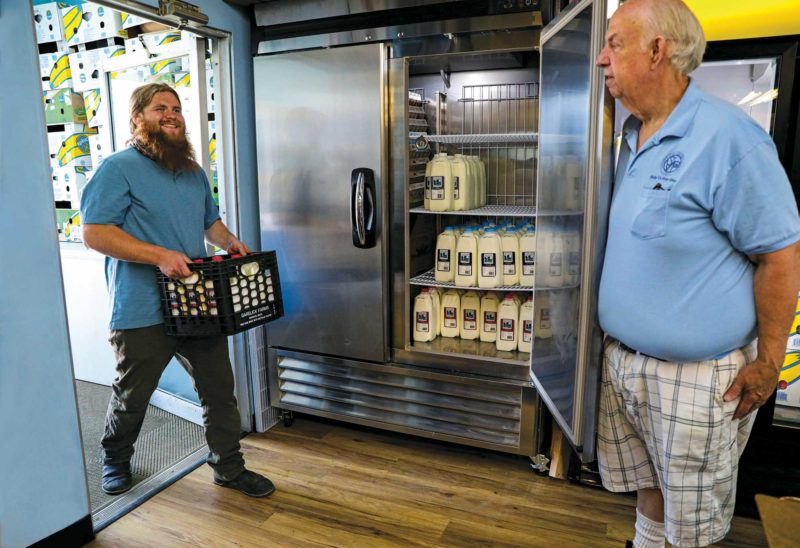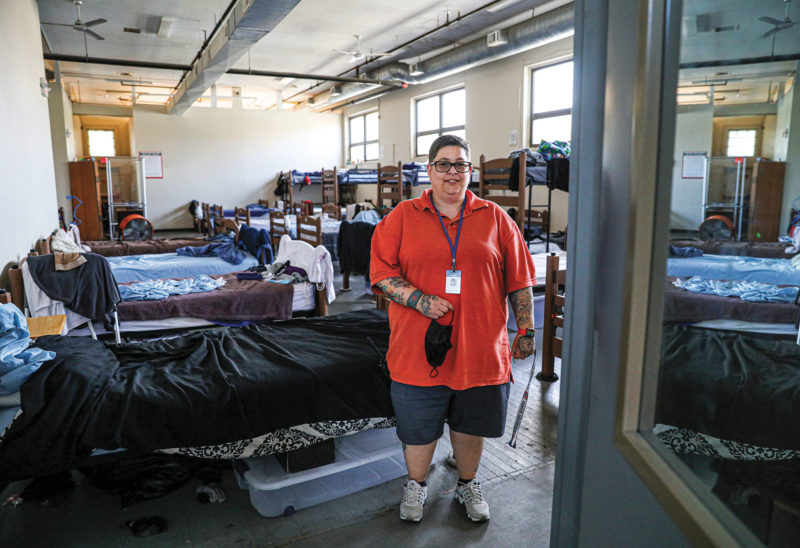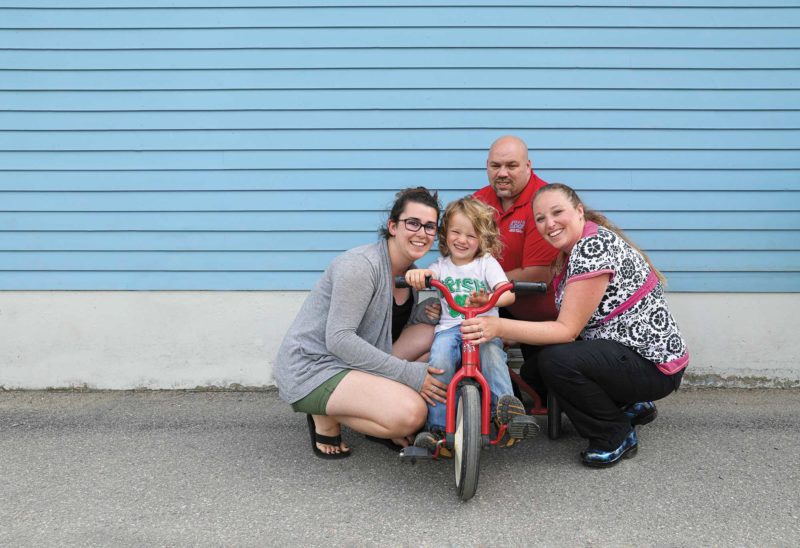All New Hampshire voters will be allowed to vote absentee in next month’s general election — for the first time ever.
But not everyone knows how. The law is brand-new, and for some, lack of knowledge about how the process works can be a barrier to voting.
A coalition of New Hampshire nonprofits is working hard to break down those barriers and help ensure that everyone in New Hampshire knows how to vote safely and securely.
“We don’t want anyone to have to choose between their right to vote and their health — and we want to make sure the poll workers don’t have the burden of an overwhelming amount of people coming to the polls and creating a health risk,” said Sarah Chaisson-Warner, director of the New Hampshire Democracy Fund, which was part of the coalition that advocated for the law change. “So the more that we can do together to ensure a safe, secure and accessible election, the better it is for everyone.”
Once the law was changed, the coalition knew that voter education would be critical.
With support from a Charitable Foundation grant, the nonprofit and nonpartisan Open Democracy has now embarked on an extensive, statewide voter-outreach campaign. Through phone, text and other digital communications, the group is reaching out to 100,000 New Hampshire households to help make sure people understand their eligibility and how to vote absentee.
Open Democracy is focusing on four demographic groups, without regard for political-party affiliation: young adults and students, people of color, women from low-income households and people in very rural communities.
The nonprofit group is reaching out to those voters because of a series of identified barriers to understanding voting rights and options:
Two recent court cases about student voting in New Hampshire already had many young people unsure of the rules; and many are first-time voters and need information on how to register as well as on how to vote absentee, Chaisson-Warner said. For some communities of color, in addition to lack of information about absentee voting in general, there are language barriers and questions about how to get language interpretation. For women who are struggling to maintain a household and family solo on a low income, barriers to voting can include working multiple jobs and lack of child care — so being able to vote absentee may encourage participation. And people in extremely rural communities may have lack of broadband access — so just downloading the absentee-ballot request to send to the town clerk can be a barrier.
“We really are in uncharted territory about how we vote safely and securely during a pandemic,” said Open Democracy Executive Director Olivia Zink. The process of absentee voting, she said, can be confusing to some people. “It’s really important to have somebody explain to people how to do it,” she said. “And there are people who want to mask up and vote in-person at the polls. We want to make sure they know how to do that safely, too.”
Open Democracy’s grassroots teams have also worked with meals-on-wheels programs, farmers’ markets and food pantries to distribute absentee-ballot request forms to people who need them.
Foundation staff let donors who hold funds at the Foundation know about the need. The response was robust, and the Foundation combined multiple donor-advised fund contributions into a $40,000 Foundation grant for voter outreach.
“Donors really stepped up,” said Deborah Schachter, a senior program officer and the Foundation’s policy director. “People care deeply about the integrity of the democratic process, and about making sure everyone is able to participate — either by absentee or safely in-person on November third.”
The coalition of nonprofits working on voter education has developed the website Votenh2020.org, where the process for voting absentee is outlined in detail in English and Spanish — with links to absentee ballot request forms, information on how to register and links to check registration status and how to find your polling place. This nonprofit voter-education website augments information available on the New Hampshire Secretary of State’s website, which lists voting resources, including a “NH Votes Safe 2020” video featuring former Republican Senator Judd Gregg and former Democratic Governor John Lynch.
“Groups like Open Democracy have been working tirelessly to make sure that we have a safe, secure and accessible election” Chaisson-Warner said, “and to make sure that all voters have as much information as possible to make the decision about how they want to exercise their right to vote.”
Open Democracy was founded by Doris Haddock, New Hampshire’s iconic “Granny D,” who walked 3,200 miles across the country at the age of 90 to call attention to the issue of campaign finance reform.
“Granny D said ‘Democracy is something we do and we all have to remember to do democracy,’” Zink said. “It’s going to take all of us to communicate with our friends and family and networks about how to vote to make sure everybody can participate.”

